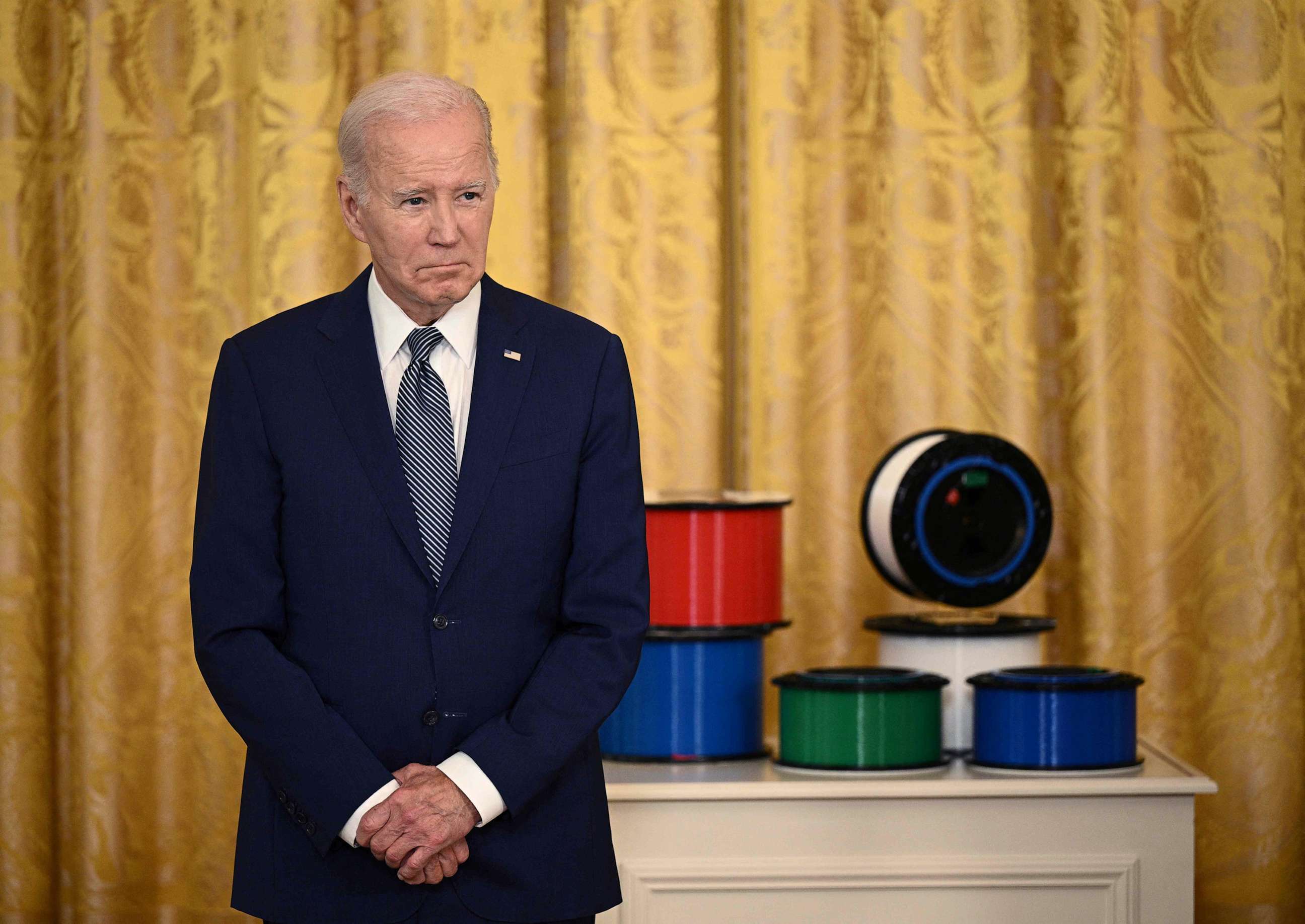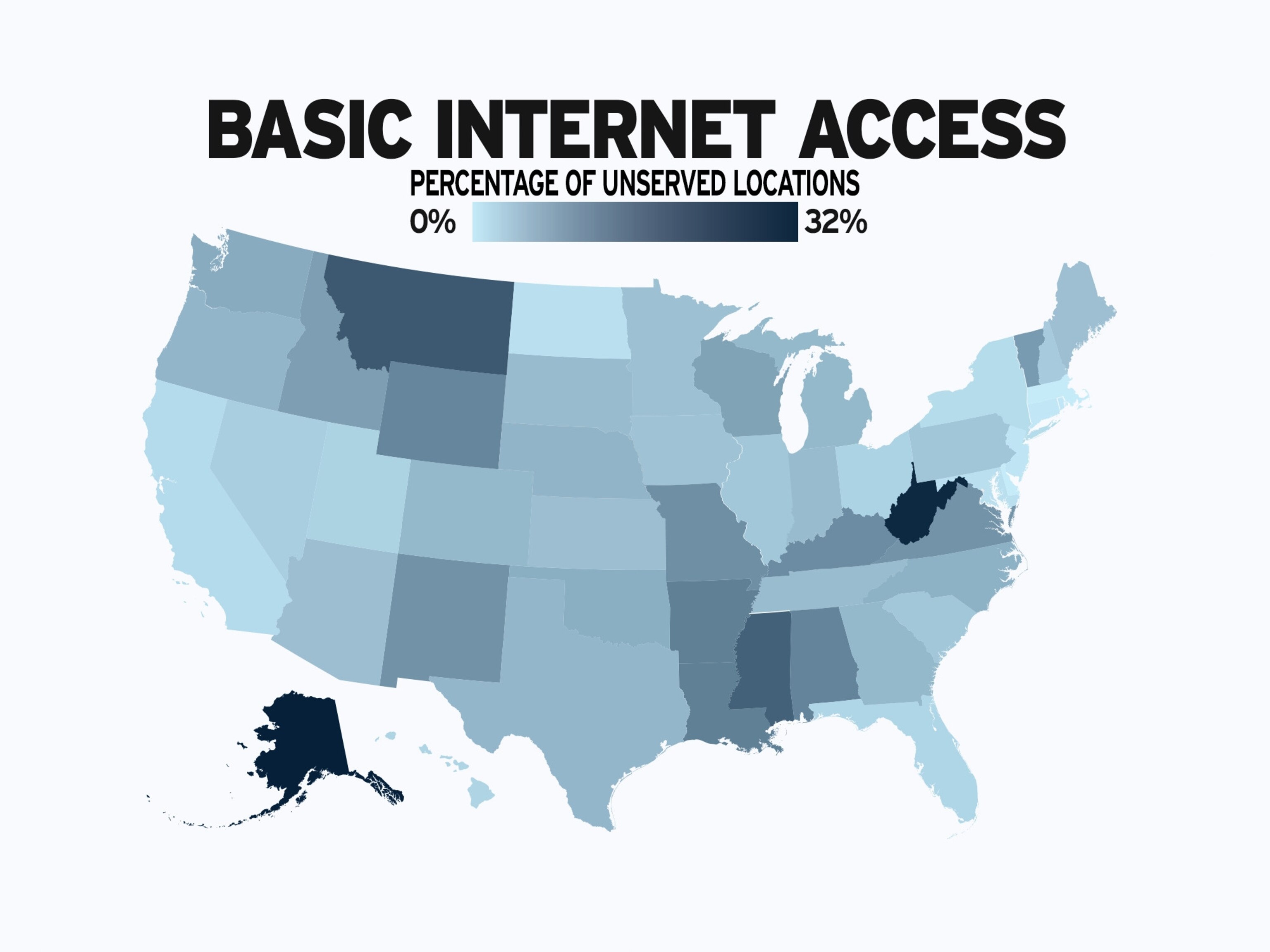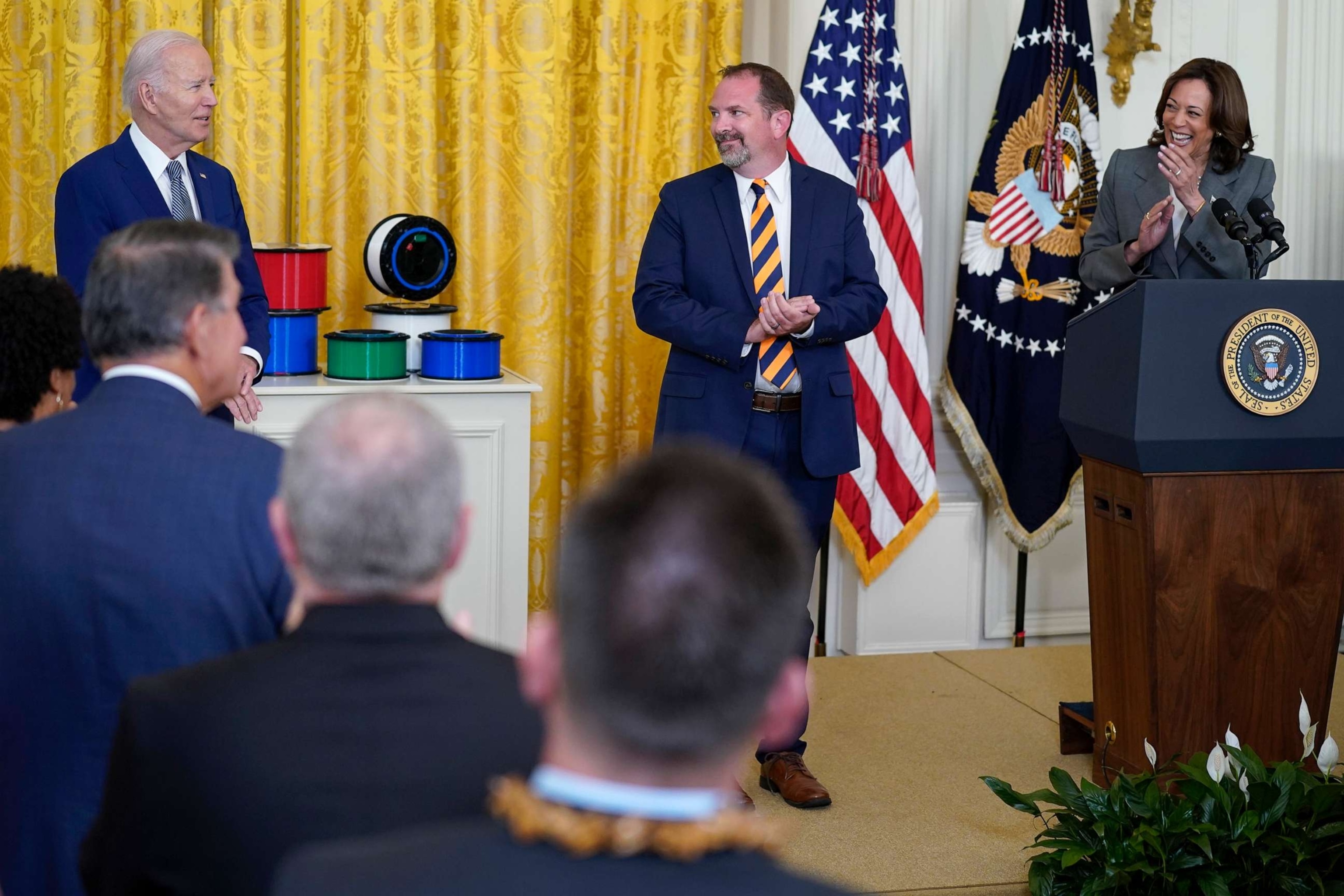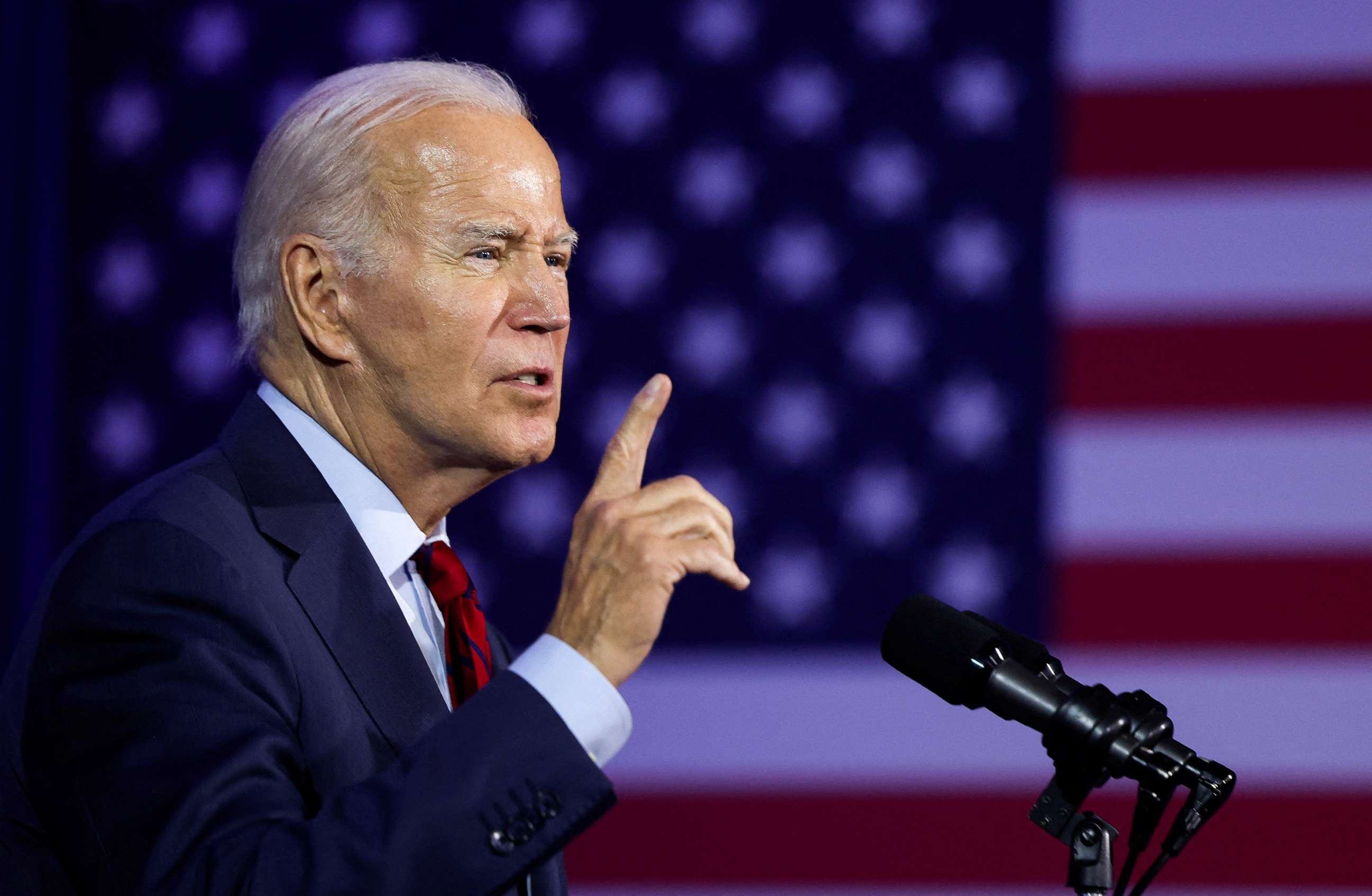Biden announces how $40 billion for high-speed internet will be used, as he pitches 'Bidenomics'
It comes as he faces political headwinds on the economy heading into 2024.
President Joe Biden on Monday announced how $42.5 billion from the bipartisan infrastructure law he championed will be distributed to expand high-speed internet access across the country.
The funding will go to all 50 states, Washington, D.C., and U.S. territories, and is aimed at bolstering internet access particularly for the 7% of people who live in underserved areas, according to the White House, which said all residents and small business could be connected to "reliable, affordable high-speed internet by 2030."
In remarks from the White House, Biden called it an "equally historic investment" as the effort under President Franklin Delano Roosevelt to bring electricity to rural America.
"For today's economy to work for everyone, internet access is just as important as electricity or water or other basic services," he said.
Biden and Vice President Kamala Harris plan to kick off a three-week pitch aimed at touting their administration's investments across the country -- including the 2021 infrastructure law and a host of other legislation they argue is starting to make concrete improvements in Americans' lives.

It comes as Biden faces political headwinds on his handling of the economy, which consistently is a noted issue with voters heading into the 2024 elections.
On Wednesday, he is scheduled to deliver what the White House is billing as a major speech on "Bidenomics" – what his advisers have labeled his economic philosophy of investing in the middle class.
It's an attempt to rebrand a message Biden has repeated time and time again on the 2020 campaign trail and as president.

Over the next three weeks, top administration officials plan to fan out across America to show how legislation he has championed -- his infrastructure law to the CHIPS and Science Act, a COVID-19 relief package and more -- is beginning to result in tangible benefits for people, like new jobs, new bridges and, now, new internet access.
Harris has already traveled the country promoting high-speed internet access, and the president often asks audiences to imagine if they had to drive to a McDonald's parking lot for their child to use the eatery's internet to do their homework.
Biden's chief of staff has likened the push to President Roosevelt's Rural Electrification Act, which delivered electricity to farming families across the country, saying that decision "helped transform rural America."
"For millions of Americans in rural communities in particular, the internet is down a lot," Jeff Zients told reporters Sunday. "Sometimes there's not even any access, and we all know from our day-to-day lives how internet access is not a 'nice to have' at this point -- but it's a 'need to have,' a 'must have.'"

Commerce Secretary Gina Raimondo told ABC News that the money would help about 8.5 million American households without internet access and millions more with unreliable access.
"[It's] a small family farm in the Midwest trying to buy and sell things online but can't because they don't have internet. It's a small business, or even think about a restaurant or a shop, you know, not having the internet," she said. "It really holds people back. It's millions of kids who can't do their homework online. It's really so many Americans who can't go to the doctor online, can't do their homework online, can't shift their business online."
States can start submitting their plans for that money on July 1, then the money will go out the door "over the next few months," Raimondo said.
A senior Biden administration official told reporters the investments would create "over 150,000 construction-type jobs, from laborers to electricians to communications workers."
High-speed internet service is unavailable in about 8.5 million locations in the United States, or about 7% of the country, according to the Federal Communications Commission.
States learned Monday how allocations will work, with every state, Washington, D.C., and Puerto Rico receiving at least $100 million, according to the Biden administration.
The president will take his economic message on the road Wednesday, when he travels to Chicago to talk more broadly about how the economy under his watch by many metrics, particularly job growth and low unemployment rates.

"Bidenomics is rooted in the simple idea that we need to grow the economy from the middle out and the bottom up—not the top down," two of his senior advisers, Anita Dunn and Mike Donilon, wrote in a memorandum released Monday.
As an incumbent, Biden has the advantage of using his office to travel the country and talk about the actual, concrete impacts his policies have had on Americans' economic well-being.
But he has a long hill to climb.
With stubborn inflation, it remains to be seen whether Biden can convince folks that they're better off now – or will be better off with him in the presidency for four more years, instead of a Republican.

Last month, an ABC News/Washington Post poll found that Americans by 54-36% said former President Donald Trump, who is running for president again, did a better job handling the economy when he was in office than Biden has done in his term so far.
His advisers argue he has a lot to talk about: a transformative infrastructure law; the CHIPS and Science Act, which they say will jumpstart domestic manufacturing; and various other investments through the coronavirus relief package.
"If 'Reaganomics' was based on the idea that if you cut taxes for the wealthiest corporations, the wealthiest people in the society, and then at some point the remnants of those will trickle down to the middle class and the working class, Bidenomics is the exact opposite," Dunn said during a Monday interview with MSNBC. "Bidenomics says that the way you grow the economy in this economy is you grow the middle class."




